Last Updated on: 5th November 2025, 10:36 am
Have you ever picked up your morning coffee and wondered if you’re paying VAT on it? The answer isn’t as simple as it might seem.
In the UK, VAT on coffee can vary depending on what form it’s in, where it’s bought, and how it’s consumed. From ground coffee beans to takeaway cappuccinos and even coffee liqueurs, the VAT rules differ and can catch many businesses and consumers off guard.
Understanding VAT on coffee is essential whether you’re a café owner, a coffee lover, or a business managing sales. With varying rates, thresholds, and exceptions, knowing when VAT applies could help you avoid costly mistakes or missed tax obligations.
This guide explores the complexities of VAT on coffee products, beverages, and alcohol-infused options across different selling points. Let’s break it down clearly, so you always know what you’re sipping, and what you’re taxed on.
Do You Pay VAT on Coffee Products in the UK?
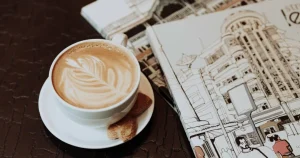
In the UK, most everyday coffee products you buy from a supermarket or retailer are zero-rated for VAT.
This includes:
- Instant coffee granules
- Ground coffee
- Whole coffee beans
- Coffee flavourings
These are considered basic food items under VAT regulations, meaning they don’t attract any VAT when sold in their raw or packaged form. So if you’re buying a jar of instant coffee or a bag of beans to brew at home, you won’t see VAT added to the price.
However, this changes when coffee is sold as a drink rather than a product. If it’s been prepared or heated for consumption, it often falls under a different VAT category.
The context in which coffee is sold determines whether it’s zero-rated or standard-rated. So, while you won’t pay VAT when purchasing beans from the shop, you likely will when ordering a freshly brewed flat white at a café.
When Is VAT Charged on Coffee from Cafés and Restaurants?
If you’re buying a cup of coffee from a café, restaurant, or takeaway shop, then yes, you’ll almost always pay VAT. That’s because when coffee is served as a hot drink, it’s subject to the standard VAT rate of 20%, regardless of whether it’s consumed on the premises or taken away.
VAT on Hot Drinks in Hospitality
In the hospitality sector, hot coffee is classed as a prepared beverage. Therefore, coffee served at cafés, pubs, kiosks, or food vans will include VAT.
This includes:
- Lattes, cappuccinos, espressos, and other hot drinks
- Flavoured coffees such as mochas or syrups added
- Hot chocolate and similar drinks
Whether you’re drinking it inside the café or grabbing it to go, the VAT remains applicable.
VAT on Takeaway Coffee
Many assume that takeaway food and drink might be exempt from VAT. However, hot takeaway coffee is not zero-rated. The rule is that if a drink is hot at the point of sale, it’s VAT-able, even if it’s going into a paper cup and heading out the door.
So that morning coffee from your favourite café? It’s priced with 20% VAT already included, and the seller is required to account for it.
Coffee Shop VAT Guidance
For businesses, the rules can be tricky. Coffee shops must determine whether their products are standard-rated or zero-rated and apply VAT accordingly.
The HMRC VAT Notice 701/14 offers clear advice but needs careful application. Knowing the difference between selling coffee beans and serving coffee is essential for compliance. Whether you’re sipping in or taking away, hot coffee is nearly always VATable in hospitality settings.
What About VAT on Iced Coffee and Cold Brews?
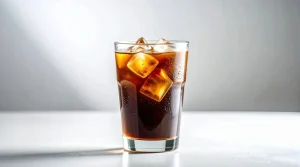
Iced coffee introduces a layer of complexity to VAT rules. If you’re enjoying a cold coffee drink in a café, such as an iced latte or cold brew served in-house, you’ll still pay VAT.
This is because the drink is being consumed on the premises, and that’s enough to make it subject to the standard 20% VAT rate.
However, the situation changes if you’re taking your iced coffee away. According to current VAT rules, if a cold drink is sold to go, it’s zero-rated, even if it’s from a café or restaurant. This aligns with how other cold beverages, like bottled water or soft drinks, are taxed when sold for takeaway.
In short:
- Iced coffee consumed on-site = Standard 20% VAT
- Iced coffee taken away = Zero-rated
This distinction is vital for businesses to get right and for consumers to understand what’s included in the price. It’s a subtle but important difference that affects how VAT is charged on coffee-based cold drinks.
Are Small Coffee Businesses Exempt from Charging VAT?
Not every small coffee business is required to charge VAT. In the UK, businesses only need to register for VAT if their taxable turnover exceeds the VAT registration threshold, which is currently £85,000 annually.
If your turnover stays below this limit, you’re not required to register for VAT, and therefore cannot legally charge it.
This means that small-scale mobile coffee vendors, independent cafés, or hobbyist sellers operating below the threshold can sell hot drinks without applying VAT. However, once your revenue crosses the threshold, registration becomes mandatory.
Even though VAT might not apply initially, businesses should track their turnover closely and prepare for the moment they need to start charging VAT. Failing to register on time can lead to penalties.
So, if you’re just starting your coffee venture, you might benefit from a VAT-free phase, but it’s crucial to plan ahead. Charging VAT without registration is illegal, and not charging when you’re supposed to is equally problematic.
Is VAT Applied to Coffee with Alcohol?
When alcohol enters the picture, VAT treatment changes significantly. Coffee liqueurs, such as Kahlúa or Tia Maria, are always subject to VAT at the standard 20% rate, regardless of where they’re sold. These are classed as alcoholic beverages, which are never zero-rated under UK VAT law.
Similarly, when you enjoy a hot alcoholic coffee, for example, an Irish coffee or a liqueur-spiked espresso served in a pub or restaurant, the drink is also VATable at 20%. This applies whether the drink is consumed on-site or taken away.
Even if you buy a pre-mixed coffee cocktail in a sealed bottle for home consumption, VAT will be included in the price. The combination of alcohol and coffee overrides the zero-rating typically applied to coffee on its own.
For coffee businesses or bars serving these beverages, correct VAT treatment is vital. There’s no exemption here, if your coffee has alcohol, you will be paying and charging standard VAT.
How Can You Stay Compliant with UK VAT Coffee Rules?
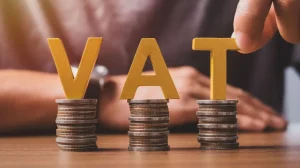
To remain compliant with VAT regulations surrounding coffee in the UK, businesses need to fully understand how VAT applies to the specific products or services they offer. Start by reviewing your full range of offerings, do you sell coffee beans, hot drinks, cold drinks, or alcoholic beverages?
Next, determine if your business meets the VAT registration threshold. If it does, you’ll need to register for VAT with HMRC and start charging the correct rate based on the product and context of sale.
Invest time in reading HMRC VAT Notices, especially Notice 701/14 Food, which outlines rules on beverages. It’s also wise to use a digital accounting system to help calculate and report VAT correctly.
Training staff is equally important. Make sure they understand which drinks carry VAT and how to apply it at point of sale. Keeping accurate records of sales and VAT charged is essential.
Staying informed, applying rules correctly, and keeping proper documentation ensures you stay on the right side of VAT law.
VAT Rates for Coffee Products and Services
Different coffee-related items and services attract different VAT treatments based on how they’re sold.
Here’s a quick reference guide:
| Product/Service | Example | VAT Rate | Notes |
| Instant coffee (retail) | Supermarket jar | 0% | Zero-rated as basic food |
| Ground coffee beans | Packaged whole beans | 0% | Zero-rated |
| Hot coffee (in café) | Cappuccino, espresso | 20% | Standard VAT rate applies |
| Takeaway hot coffee | To-go flat white | 20% | VAT charged even if taken away |
| Cold brew takeaway | Iced coffee in paper cup | 0% | Zero-rated if not consumed on site |
| Iced coffee in café | Served in-house | 20% | Standard VAT rate applies |
| Alcoholic coffee (anywhere) | Irish coffee, coffee liqueur | 20% | Always VATable as alcohol |
Understanding the correct VAT rate for each scenario helps both consumers and business owners avoid mistakes and stay compliant with current rules.
Conclusion
VAT on coffee in the UK is more complex than it might first appear. While buying coffee beans or instant coffee from a supermarket is VAT-free, buying a hot drink from a café almost always includes VAT at 20%.
The VAT treatment also varies depending on whether a drink is hot or cold, taken away or consumed on site, and whether it contains alcohol.
For small coffee businesses, VAT registration depends on turnover, but even unregistered sellers must follow the rules. If you operate in this space, it’s essential to understand these distinctions and apply the correct VAT rate.
Staying up to date with guidance from HMRC, tracking sales, and correctly categorising your products ensures your business runs smoothly. Whether you’re sipping an iced latte on the go or pouring Irish coffee in a pub, it’s helpful to know what’s taxable, and why.
FAQs
Is VAT charged on takeaway coffee in the UK?
Yes, takeaway hot coffee is subject to the standard 20% VAT rate. This applies even if the drink is not consumed on the premises.
Why is instant coffee zero-rated but café coffee isn’t?
Instant coffee is treated as a basic food item and is zero-rated. Café coffee is a prepared hot drink and taxed at 20%.
What VAT rate applies to flavoured or speciality coffees?
If served hot in a café or for takeaway, they are standard-rated at 20%. If sold as cold takeaway drinks, they may be zero-rated.
Do I need to register for VAT if I sell brewed coffee?
You must register if your taxable turnover exceeds £85,000. Below this threshold, VAT registration is optional but cannot be applied.
How is VAT different for alcoholic coffee drinks?
All coffee drinks containing alcohol are subject to 20% VAT. This applies whether served in-house or sold in bottles.
Does VAT apply to coffee subscriptions or deliveries?
If the product is zero-rated (like beans), no VAT applies. If it includes hot drinks or services, VAT may apply.
How do I calculate VAT for a mobile coffee business?
You must charge 20% VAT on hot drinks sold if registered. Cold takeaway drinks might qualify for zero-rating depending on conditions.
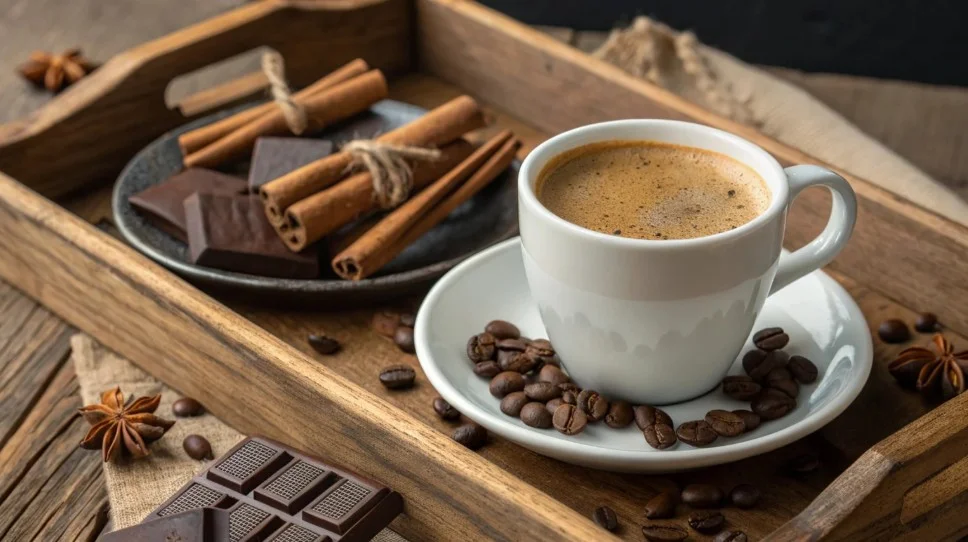









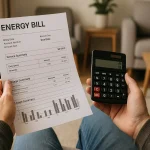
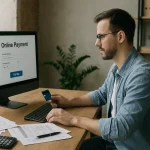

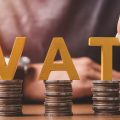

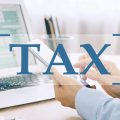
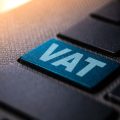
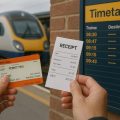
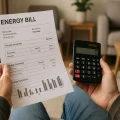

No Comments
Leave a comment Cancel